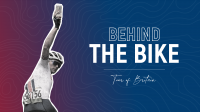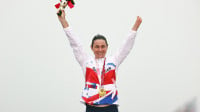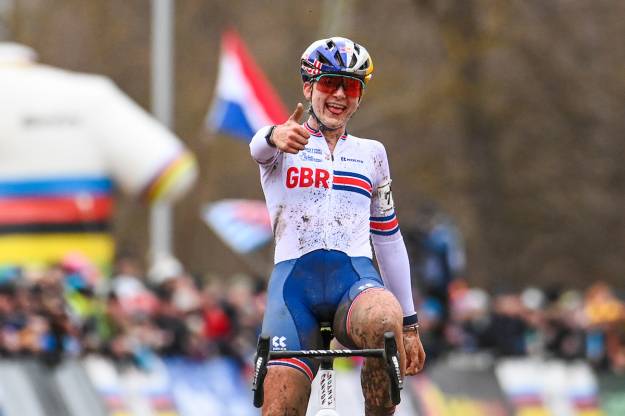The team pursuit is a battle against the clock - and your opponents.
About
Teams of four riders start on opposite sides of the velodrome and ride to set the fastest time over 4km - 16 laps.
The clock stops when the third rider in a team crosses the finish line and often teams will drop one rider during the race when they are too tired to continue.

Format
The event starts with qualification - a pure race against the clock. Eight teams qualify for the first round, with first racing fourth, second taking on third, fifth against eighth and sixth versus seventh.
The winners of the heats involving the top four qualifiers go through to the gold-medal final. The two places in the bronze-medal final are determined by the fastest times of the six remaining qualifiers.
In the finals, the fastest team wins, but there’s a second way to take victory. If you can catch your opponent, the race is won.
Venue
Organisers of the 2020 Olympics and Paralympics in Tokyo scrapped plans to build a purpose-built, 5,000 seat velodrome for the Games in Tokyo Bay as part of cost-cutting measures. Track cycling will now be held at the Izu Velodrome, 120km to the south-west of Tokyo.
The Izu Velodrome has a 250m Siberian Spruce wooden track with 42 degree banking and opened in 2011 as the first indoor cycling track in the country. The venue currently has a 4,300 seat capacity.
When
Track cycling at the 2020 Olympic Games in Tokyo is currently scheduled to take place from Thursday 30 July until Tuesday 4 August.
With Tokyo eight hours ahead of British Summer Time, it is believed that racing will take place at around 2am-3.30am (Saturday, Sunday and Tuesday, early sessions) and 8.30am-11am (all days, evening sessions) for UK audiences.

Facts
- History was made in the Rio Olympic Velodrome as women took on the 4km, four rider team pursuit for the first time in Olympic history, with Team GB's Katie Archibald, Elinor Barker, Joanna Rowsell Shand and Laura Trott winning gold, beating the USA in the final.

- It was only the second Olympic Games with a women’s team pursuit event, with Dani King, Laura Trott and Joanna Rowsell winning the inaugural event for Great Britain in London in 2012.
- Men’s team pursuit Olympic champions were crowned for the 24th time in Brazil, with the quartet of Steven Burke, Ed Clancy, Owain Doull and Sir Bradley Wiggins winning gold in Rio, beating Australia in the final.

- That was the third British team pursuit gold in consecutive Games. In London in 2012, Clancy and Burke were joined by Geraint Thomas and Peter Kennaugh to claim the Olympic title.
- In Beijing in 2008, Clancy and Thomas were joined by Paul Manning and Sir Bradley Wiggins for victory in Beijing. The win in 2008 ended 100 years of team pursuit hurt – Great Britain’s only previous gold came in the first team pursuit competition in London in 1908.
- Britain has produced two silver medal winning team pursuit efforts, in 1920 in Antwerp and in Athens in 2004, with bronze medals on nine occasions.

Records
World records
Men – 3:50.265, Great Britain (Ed Clancy, Steven Burke, Owain Doull, Sir Bradley Wiggins), 12 August 2016, Rio de Janeiro, Brazil, Olympic Games.
Women – 4:10.236, Great Britain (Katie Archibald, Laura Trott, Elinor Barker, Joanna Rowsell Shand), 13 August 2016, Rio de Janeiro, Brazil, Olympic Games.
Olympic records
Men – 3:50.265, Great Britain (Ed Clancy, Steven Burke, Owain Doull, Sir Bradley Wiggins), 12 August 2016, Rio de Janeiro, Brazil.
Women – 4:10.236, Great Britain (Katie Archibald, Laura Trott, Elinor Barker, Joanna Rowsell Shand), 13 August 2016, Rio de Janeiro, Brazil.









